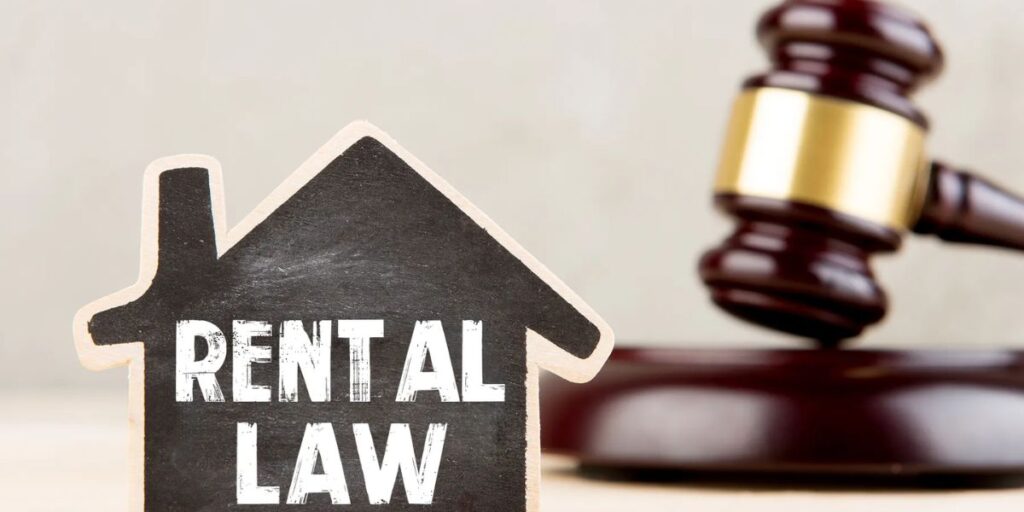As Hawaii’s rental market continues to evolve, renters need to stay informed about their rights, particularly when it comes to rent increases. With the cost of living steadily climbing across the state, many renters are concerned about the impact of potential rent hikes on their budgets.
In 2025, understanding Hawaii’s rent increase laws and the legal protections in place is essential for tenants looking to maintain stability in their living arrangements.
This article will delve into the key aspects of Hawaii’s rent increase laws for 2025, explain the state’s fair housing protections, and provide guidance on how renters can protect themselves in the face of rising rents.
Understanding Hawaii’s Rent Increase Laws
Hawaii is a state with a unique rental landscape due to its limited housing supply, particularly on the islands of Oahu, Maui, and the Big Island. Rent increases, however, are regulated by both state law and local ordinances, and there are specific rules landlords must follow.
Statewide Rent Control
In 2025, Hawaii does not have a statewide rent control law for most rental properties. This means that, for the most part, landlords are free to raise rents at their discretion, as long as they follow proper legal procedures. However, rent increases cannot be arbitrary or done in retaliation, and there are protections in place to ensure that increases are not excessive or discriminatory.
Hawaii’s landlord-tenant law, found under the Hawaii Revised Statutes (HRS) Section 521, establishes rules governing the relationships between landlords and tenants. In general, rent increases are allowed with the following guidelines:
- Written Notice: Landlords must provide written notice of a rent increase. The amount of notice depends on the length of the tenant’s lease.
- For month-to-month tenancies, landlords must give at least 45 days’ notice of a rent increase.
- For tenants on leases longer than one year, rent increases can only occur at the end of the lease term unless specified otherwise in the contract.
- Frequency of Rent Increases: While landlords are not restricted in how often they can increase rent, any increase must be reasonable and comply with other state laws. Typically, tenants can expect rent increases to occur once a year or once every 12 months.
Limits on Rent Increases for Subsidized Housing
For tenants in federally subsidized or affordable housing, rent increases are governed by different regulations.
These properties, which include those subject to the U.S. Department of Housing and Urban Development (HUD) and Low-Income Housing Tax Credit (LIHTC) programs, have specific rules that limit rent increases based on the income of the tenants and the funding agreements between the property owner and the federal government.
Rent increases for these units may only occur once a year and must follow the guidelines outlined by the respective subsidy programs. Renters in these properties can typically expect increases to be capped based on inflation and market factors.
Rent Increases and Fair Housing Laws
Hawaii, like the rest of the United States, adheres to federal and state fair housing laws that protect renters from discrimination.
Rent increases, or the threat of rent increases, cannot be used as a means of discriminating against tenants based on race, color, religion, sex, familial status, disability, or national origin. These protections are part of the federal Fair Housing Act and Hawaii’s Fair Housing Law, both of which prohibit discrimination in housing practices, including the setting of rent.
Discriminatory rent increases or rent changes made based on any of these protected characteristics are illegal. If a tenant suspects that a rent increase is discriminatory, they may file a complaint with the Hawaii Civil Rights Commission or the U.S. Department of Housing and Urban Development (HUD).
Tenant Protections Against Unlawful Rent Increases
While rent increases are generally permissible under Hawaii law, there are a few additional protections in place to prevent tenants from being taken advantage of by unfair practices:
- Excessive Rent Increases: A rent increase that is deemed excessive or in bad faith could be challenged in court. For example, if the rent increase is far beyond the market average for similar properties in the same area, tenants may have grounds to dispute it.
- Retaliatory Rent Increases: Renters are protected against retaliatory rent increases. If a tenant has filed a complaint about living conditions or exercised a legal right, such as reporting code violations or requesting repairs, a landlord cannot raise rent in retaliation. Any rent increase within six months of such actions may be considered retaliatory and unlawful.
- Rent Increases for Seniors and Disabled Renters: Hawaii has specific protections for seniors and disabled individuals in rental agreements. Some local governments, such as the city of Honolulu, offer additional assistance, including rent caps and programs to assist older tenants and those with disabilities.
Tips for Renters to Handle Rent Increases in 2025
Renters should be proactive in managing their housing situation. Here are some tips for renters facing potential rent increases in 2025:
- Know Your Rights: Familiarize yourself with Hawaii’s landlord-tenant laws, including the required notice periods and the protections against retaliatory or excessive rent increases.
- Communicate with Your Landlord: If your landlord notifies you of a rent increase, reach out for clarification and discuss the possibility of negotiating a lower increase or extending your lease with a more favorable rate.
- Document All Communications: Keep written records of all communications with your landlord regarding rent increases or other issues related to your tenancy. This can serve as important evidence if there’s a dispute over a rent hike.
- Consider Renters Assistance Programs: If your rent is increased beyond your financial ability to pay, explore local government and nonprofit programs designed to assist renters with paying rent, such as rent subsidies or housing assistance for low-income individuals.
- Look for Housing Alternatives: If rent increases are substantial, consider researching other housing options. Hawaii has an active rental market, so exploring different neighborhoods or rental properties may provide more affordable options.
Conclusion
As rent increases become a major concern for many Hawaii residents in 2025, staying informed about the legal framework governing these changes is critical. While Hawaii does not impose strict rent control laws, tenants do have rights and legal protections that prevent unfair or discriminatory rent hikes.
By understanding the rules surrounding rent increases, as well as fair housing protections, renters can better navigate the rental market and advocate for their rights when facing rent changes. Being proactive and well-informed will ensure that renters can take appropriate action to protect themselves in an increasingly expensive housing market.





More Stories
Hawaii Rent Increase Laws in 2025: What Renters Must Know to Protect Themselves
Hawaii Rent Increase Laws in 2025: What Renters Must Know to Protect Themselves
Hawaii Rent Increase Laws in 2025: What Renters Must Know to Protect Themselves